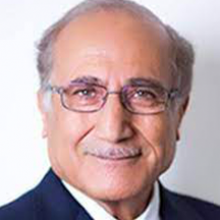You are here
We need hope
May 14,2018 - Last updated at May 14,2018
According to Ibrahim Badran, former minister of education, the Arab citizen has become immune to shocks. Hardly any day passes by without a blood-boiling outbreak of bad news. Yet, Arabs, in general, take that in their stride as “so, what else is new?”
This week will witness the elapse of seventy years since Israeli forces occupied Palestine, and almost 51 years since the West Bank, the Golan Heights and Sinai Desert were occupied as well.
Jerusalem will be recognised as Israel’s capital by opening the US embassy there in a celebration which will be echoed all over the world. There will be demonstrations in Gaza, Jerusalem and West Bank cities, in Jordan and many other Arab and Muslim countries. Arab students outside the Arab world and their supporters will carry Palestinian flags in the streets of the cities where they live.
This worldwide expression of anger will gradually fade away and the facts on the ground would most probably stay as they are; a constant reminder of our helplessness.
Yemenis are protesting the UAE’s so–called occupation of Socotra. Ethiopia and Kenya protest the militarisation of the African Horn by Arabs. Iran and Israel are engaged in a finger-biting contest in Syria. Russia is defending the Syrian regime while ignoring the Israeli air and missile attacks on Iranian camps and ammunition warehouses in Syria.
We also witnessed recently a change in the political profile of Lebanon after its last legislative elections. Municipal elections in Tunisia were not less exciting. Iraqi elections will soon reveal permanent new realities in Iraq.
Sudan and Ethiopia are blamed by Egypt for the failure of the negotiations over the dam built on the Blue Nile on the borders between Ethiopia and Sudan. Libya is boiling and it is very difficult to guess who is doing what to whom.
In the Levant, the Arabian Peninsula, North Africa and Eastern Africa, things are quickly unfolding into new realities, which will have severe impact on the future of the Arab world. Yet, nothing seems to shock us enough into pushing for a positive concrete action, which would help us save our future.
Meanwhile, we are losing economically on all fronts. We are making more money as a result of higher oil prices, but the existing and prospective uses of that money are bigger than the sources. Unemployment and poverty all over the Arab world are on the rise. Young people see little hope of better lives in their respective countries. The walls barring entry into markets with higher lucrative prospects in Europe, North America and Australia are rising. The sentiments against us, Arabs, are very high and new parties specialised in anti-Arab and Anti-Islam sloganeering are growing in stature and popularity.
This dismally depressing description of the Arab status quo is not meant to destroy our morale. There are sporadic glimpses of hope, which surprise us here and there. If those are allowed to take their natural course, they could pleasantly shake us to awaken to the reality that hope is what we need.













